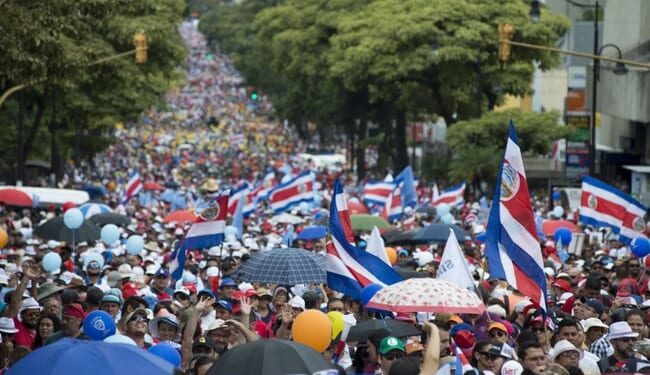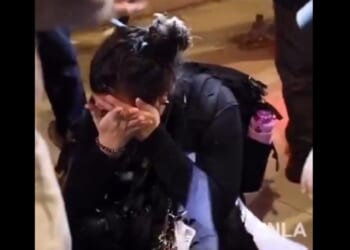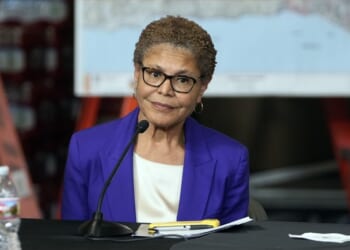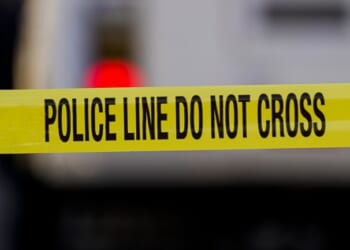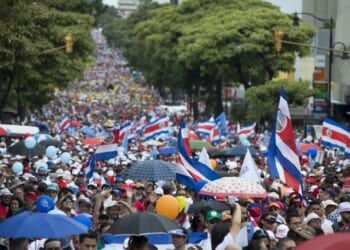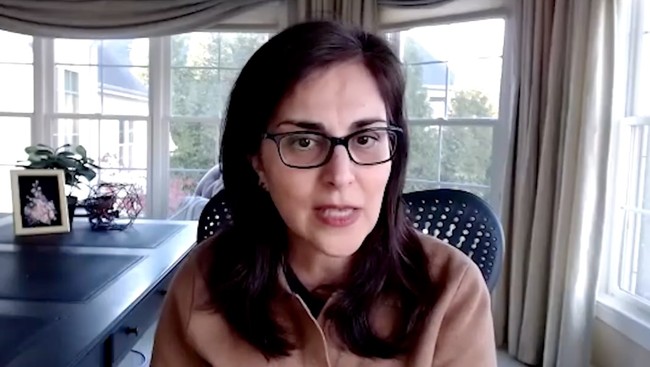
Did the American strikes on Fordow, Isfahan, and Natanz end the Iranian nuclear threat? Did Israel’s targeting of its scientists and military leaders force the end of the mullahs’ ambitions to dominate the region through atomic blackmail? Intelligence from both countries strongly suggest that the Twelve-Day War set Iran back at least several years in its push to make a nuclear weapon.
However, the UN agency most able to provide a direct assessment just threw up its hands. The International Atomic Energy Agency reports that its inspectors cannot access the uranium stockpiles that presented the gravest threats to an Iranian breakout in nuclear arms. Therefore, there is no way of knowing whether the threat has truly ended, or whether that work continues in secret elsewhere:
The International Atomic Energy Agency has not been able to verify the status of Iran’s near weapons-grade uranium stockpile since Israel struck the country’s nuclear sites during the 12-day war in June, according to a confidential report by the United Nations’ nuclear watchdog circulated to member states and seen Wednesday by The Associated Press.
The IAEA said that the status of the near weapons-grade material “needs urgently to be addressed.”
According to the IAEA’s last report in September, Iran maintains a stockpile of 440.9 kilograms (972 pounds) of uranium enriched up to 60% purity — a short, technical step away from weapons-grade levels of 90%.
That stockpile could allow Iran to build as many as 10 nuclear bombs, should it decide to weaponize its program, IAEA director general Rafael Grossi warned in a recent interview with the AP. He added that it doesn’t mean that Iran has such a weapon.
The problem here is the absence of evidence, rather than the evidence of absence. Iran had initially agreed to allow IAEA inspectors to access the damaged/destroyed facilities as part of the cease-fire agreement. However, Tehran’s lack of compliance on other issues prompted the West to reimpose the “snap back” sanctions this summer, at which point Iran suspended cooperation with the IAEA. Inspectors only got access to a less-contentious site before the mullahs balked.
Even with an absence of direct evidence, we have enough indirect evidence to reach some conclusions, at least for now. The Iranians built the redoubt at Fordow to provide an impermeable defense against outside attack, and it was by far the most secure site for Iran to not just store its enriched uranium but also its final-sequence centrifuges. That equipment is extremely sensitive to environmental changes, and the bunker busters almost certainly created massive damage to those cascades, even if the Iranians could reach them. The US and Israeli attacks on the other sites took out the metallurgical sites necessary to create weapons cores for nuclear weapons too. The assessments that the strikes took several years of progress and billions of dollars in investments are reasonable under the circumstances, even if they cannot be confirmed by direct observation.
Unfortunately, that still does not solve the problem, as Dr. Ramesh Sepehrrad explains in our interview below. Dr. Sepehrrad is an Iranian ex-pat whose family has suffered under the oppression of both the Shah and the mullahs, who now works with the National Council of Resistance of Iran (NCRI). The current regime sees nuclear weapons not only as a means for its ambitions of regional hegemony and a tool for the annihilation of Israel, but also the only sure guarantor of its own survival from within.
We spoke yesterday to preview the NCRI’s upcoming Free Iran Convention that will take place on Saturday, November 15th. A number of notable speakers discussing the potential and strategies for a peaceful change of regime, although the roster is not yet firmed up:
PANEL 1 examines why Iranian society has reached a breaking point, and why fundamental change has become inevitable. PANEL 2 highlights the central role of Iranian women, whose leadership has transformed the national struggle for freedom. PANEL 3 presents the practical roadmap for bringing an end to clerical rule and ensuring a peaceful transfer of power to a democratic, secular, republican government. PANEL 4 turns to Iran’s younger generation, whose defiance and vision are reshaping the country’s political future.
A special segment, The Heart of Iran in Revolt, amplifies voices from inside Iran, stories of courage, resilience, and unshakable hope. The program also includes a Distinguished Dialogue on how Iran can rebuild its institutions and economy in a new democratic era, A Scholar’s Vision for Tomorrow, outlining a forward-looking framework for national recovery, justice, and prosperity. Finally, in the International Section, prominent American and European dignitaries will share their perspectives on global support for the Iranian people’s struggle for freedom and the international significance of a democratic, peaceful Iran.
Dr. Sepehrrad and I spend some time discussing the convention, but mainly focus on the regime and its precarious position. It has taken body blows to its prestige and its claims of divine authority, thanks to its impotent defenses in the Twelve Day War and the impending water crisis, which we discuss specifically. A few excerpts from the AI-generated transcripts, with some light editing:
On women in the resistance movements: “As someone who witnessed this, personally, someone who has studied this over the years and have been researching this fact over the years, I am extremely hopeful and I am extremely proud to see how Iranian women went from a very dire situation where they could have remained a victim to become survivors and now empowered leaders and are actually forging a path to a democratic, secular, and a non-nuclear republic Iran.”
On nuclear weapons: “I think it’s important to understand why is the regime driving to get its hands on a nuclear weapon. We’re dealing with a country that has access to a lot of natural resources. It really doesn’t need to have nuclear weapons. But you’re absolutely right. The miscalculation that we’ve seen in the Western policy is that this regime is just gaining or adding more tools to its toolbox. I think we need to pivot that and we need to change that thinking and look at the Iranian regime is driving to get its hands on a nuclear weapons program because it’s a means of survival for the supreme leader of Iran.”
On the meaning of the water crisis: “I think just as any other issue inside Iran, the core cause of the crisis that Iran is facing right now, especially in Tehran, and the issue of water is a mafia-style governance, this massive corruption and mismanagement by the revolutionary guards that has led us to this point. …
“Since 2017, Iran has had massive nationwide uprisings over and over again. And some of it was over the price of egg that started in the city of Mashhad and it became a nationwide uprising. The other one was over the price of gasoline and ration that also led to a nationwide uprising. And then the last one that we saw was over the killing of a Kurdish the young innocent Kurdish girl inside Tehran. So when you put all of these examples together, could this be another catalyst?
“This could very much potentially be another catalyst, because the Iranian society is so explosive, and it just needs that trigger.”
===
Dr. Sepehrrad has much more to share with readers and viewers, especially her optimism that the moment is finally at hand for a collapse of the current regime and that a new era of freedom for the Iranian people will be its result. Be sure to watch it all, and follow the links back to the NCRI website to find out how to follow and/or participate in the NCRI’s Free Iran Convention this Saturday.
The Ed Morrissey Show is now a fully downloadable and streamable show at Spotify, Apple Podcasts, the TEMS Podcast YouTube channel, and on Rumble and our own in-house portal at the #TEMS page!
Editor’s Note: Thanks to President Trump and his administration’s bold leadership, we are respected on the world stage, and our enemies are being put on notice.
Help us continue to report on the administration’s peace through strength foreign policy and its successes. Join Hot Air VIP, VIP Gold, or VIP Platinum, and use promo code POTUS47 to get 74% off your membership!

